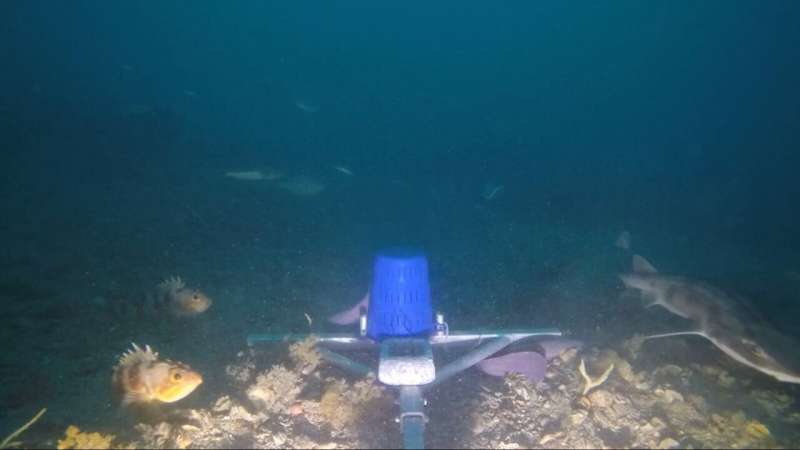Hotspots of marine life discovered off Wellington's coast

Underwater reefs teeming with marine life have been found in the waters off Wellington's south coast and the K膩piti Coast.
Researchers from Te Herenga Waka鈥擵ictoria University of Wellington made the discovery while exploring the region's deepwater reefs and the animals that live in them.
"We found the seas around Wellington contain many previously unknown deepwater marine communities. Amazing corals and massive branching sponges were among the species we caught on camera," said Professor James Bell, lead researcher and a marine biologist at the University.
Eighteen deepwater sites, ranging in depth from 26 to 72 meters, were explored in the study.
"The diversity of marine animals we found was stunning. There was very little bare space on the ocean floor at any of the sites and the animal communities were quite different to what we would find in the shallows," Professor Bell said.
Sponges and bryozoans鈥攃ommonly known as moss animals鈥攚ere the most abundant, covering about 30% of the seafloor in the sampled areas.
"These sponges and bryozoans form complex structures on the seabed, which are likely to play an important role in providing habitat, refuge, and food for other animals."
Sharks, blue cod and hagfish were among the species filmed by the researchers. At Hunter Bank off the K膩piti Coast, an octopus also turned up: "Seeing the octopus arrive was really unusual and something we don't often catch on camera."
The rich biological diversity of the sites means they're also likely to contain many previously undescribed marine species, which may be at risk from fishing and boats dropping anchor, Professor Bell said.
"None of the 18 sites is currently protected. But we do know that damage from fishing is a real threat. Our video footage showed evidence of discarded fishing lines and anchor ropes at several sites."
"Knowing where these high biodiversity sites are is crucial if we want to manage the activities that impact them," said Dr. Megan Oliver, a senior scientist at Greater Wellington.
"Regional councils have a key role to play in halting biodiversity decline and this survey is part of a larger collaborative marine habitat mapping program to find and describe important and vulnerable marine habitats," she said.
Provided by Victoria University of Wellington





















